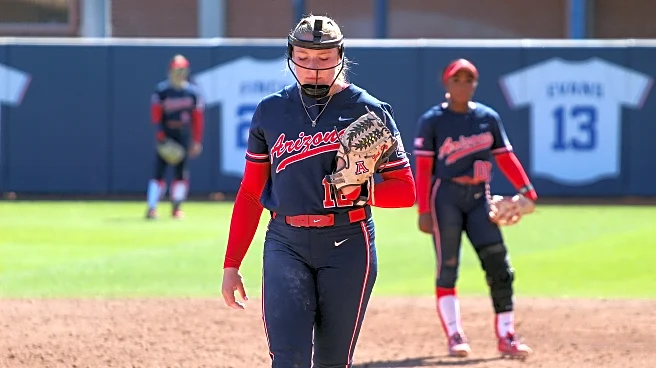Rapid Read • 8 min read
President Donald Trump has signed an executive order titled 'Saving College Sports,' which aims to introduce more policy and structure to existing name, image, and likeness (NIL) deals in collegiate athletics. This order follows the House v. NCAA settlement, allowing schools to share up to $20.5 million in revenue with athletes for their NIL rights. The executive order raises questions about the status of student-athletes, potentially classifying them as employees of their schools. It also addresses antitrust protections for colleges, urging the Federal Trade Commission and Attorney General to review policies to prevent monopolies in collegiate sports. Additionally, the order instructs the National Labor Relations Board to decide on the student-employee status, which could impact benefits and union rights for athletes.
AD
The executive order could significantly alter the landscape of college sports by redefining the relationship between student-athletes and their institutions. If athletes are classified as employees, schools may need to provide salaries and benefits, similar to professional leagues. This change could lead to increased financial opportunities for athletes but also raise concerns about fairness and consistency across different schools. The order's focus on antitrust protections is crucial to prevent monopolistic practices in college sports, ensuring a level playing field. The debate surrounding NIL deals highlights the evolving nature of college athletics, with potential impacts on recruitment, team dynamics, and the overall culture of college sports.
The National Labor Relations Board's decision on student-employee status will be pivotal in determining the future of athlete compensation and labor rights. Congress may need to address antitrust exemptions to prevent legal challenges against universities. The NCAA faces pressure to establish uniform NIL rules to ensure equitable distribution of funds and maintain competitive balance among teams. Stakeholders, including athletes, coaches, and universities, will likely continue to debate the implications of NIL deals and the executive order, seeking clarity and consistency in policies governing college sports.
The executive order and NIL debate reflect broader shifts in the sports industry, where athletes are gaining more control over their financial futures. This empowerment could lead to increased mobility among players, potentially altering team loyalties and dynamics. The cultural impact of these changes may challenge traditional views of college sports, prompting discussions on the role of athletics in higher education and the ethical considerations of athlete compensation.
AD
More Stories You Might Enjoy












